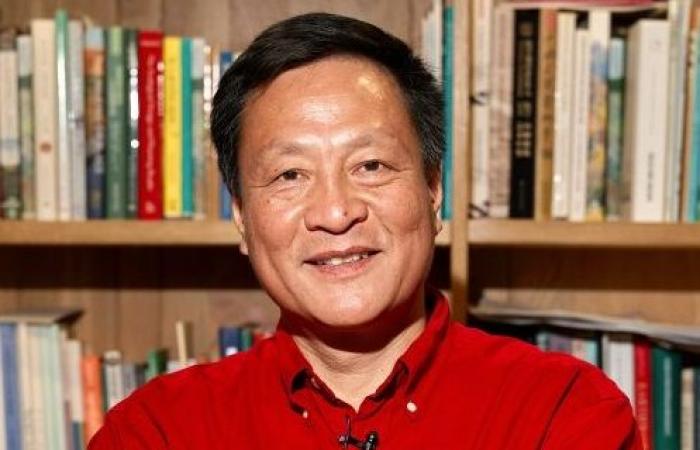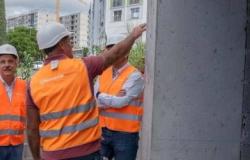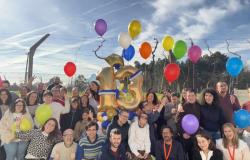Even though many organizations are already aware of the importance of collecting and analyzing information, some companies still have difficulty understanding how to actually apply this knowledge and base their strategy on concrete data. “The future will be sustainable and digital.” The person who guarantees this is José Ramon Castro, the general director of Digital Industries at Siemens for Portugal and Spain who, in an initiative that brought together dozens of journalists in Spain, recalled the pressure that exists on the industrial fabric, largely thanks to the price of materials and the energy price, thus opening doors to the importance of finding ways to respond to challenges. “But because the consumer is also more aware of the ecological footprint”, he highlights, ensuring that the “pressure on the industry is increasingly evident and data are fundamental tools for being able to act”. “But it’s not enough to obtain data”, adds the person responsible for Siemens. “It is important to give them expression, context, and find ways to ensure the best decision-making”, concludes José Ramon Castro.
Indoor hop production
The motto served as the basis for a tour of several industrial units in the food and beverage sector, spread across Madrid, Seville and Córdoba, factories that have the strategic support of Siemens.
At the first stop, it became clear that business size can be a subjective concept when we talk about digitalization and automation. Founded by Ana Sáez, Antonio Rojas, Inés Sagrario and Javier Ramiro, this start-up is now on a “mission to save the world’s beers”. A pioneer in vertical farming in Spain, they began working 5 years ago on the hydroponic crops most typical of agriculture in a controlled environment – lettuce and aromatic herbs, but after several years of research into different approaches, they decided to try something that had never been done before. After carrying out several tests with high climate risk crops, the Ekonoke team managed to optimize the hydroponic cultivation of hops in a 100% controlled environment, combining technology and scientific knowledge to provide climate resilience and sustainability to a species seriously threatened by the climate emergency. Hops, along with malt and barley, are one of the key ingredients in beer making. In addition to contributing to the bitter taste of beer, it is also important for the formation of good foam and to prevent the drink from deteriorating, preventing the formation of microorganisms due to its antiseptic power.
In short, without hops there is no beer… at least as we know it. Hops are a climbing plant, which can reach 15 meters in height, although the most common is between four and nine meters. It can withstand temperatures of up to minus 30 degrees, but it is in the middle of summer that it grows most quickly: up to 50 centimeters per week. Climate change is putting hop cultivation at risk, considering that it is a plant with special characteristics and requirements. Inés Sagrario, co-founder of Ekonoke and CEO of the company, explains that “it needs a lot of light in the summer, mild temperatures and a lot of water”, highlighting that climate change has already led, for example, to production losses in Germany of around 28 %, going back to data from 2022 (Germany, along with the United States, is responsible for 80% of world hop production). And worse: quality drops in the final material are around 60%. Taking this data into account, Siemens is a partner with Ekonoke in the development of a vertical system for growing hop vines, using sensors attached to the leaves, roots and stems of climbing plants that measure various parameters, from humidity to levels of CO2, while different wavelengths of LED lights make warehouses look like a nightclub.
Indoor hop cultivation meets this set of requirements by combining the absence of pesticides, proximity to breweries and independence from climatic conditions. This cultivation method leads to up to 95 percent less water consumption and the exclusive use of renewable energy. The strategy agreed with Siemens also improves efficiency: while abroad it is possible to harvest one harvest per year in the field, in indoor cultivation up to four harvests can be achieved per year, a leap that, together with the quality of the raw material, awakens the interest of brewers all over the world. Estrella Galicia already uses hops produced by Ekonoke.
Coke
Coca-Cola Europacific Partners (CCEP) is the largest independent bottler of the Coca-Cola Company. It produces, markets and distributes its products in Western Europe, Australia, Indonesia and the Pacific Islands. The entire group has two million customers in 29 different countries. CCEP’s Iberia Business Unit, which includes Spain, Portugal and Andorra, has seven soft drink bottling plants and four mineral water plants. In Spain, CCEP has more than 270,000 customers, serving more than 130 million potential consumers. In 2022, CCEP generated sales of 17.3 million euros, an increase of 26 percent compared to the previous year. In the context of climate, CCEP set the objective of becoming a carbon neutral company by 2040 throughout its value chain in Europe, ten years ahead of the European Union’s objective. To achieve this objective, CCEP has established a trajectory that includes reducing its carbon footprint in all areas of activity through controlling the consumption of energy, water, raw materials and, of course, the reduction of CO2. Coca Cola Europacific Partners has increased its investments in solutions capable of monitoring and reducing energy and water costs. The Seville unit, which the delegation visited, has maintained, since 2019, similar consumption values of these two inputs in the bottling processes even after the expansion of its line.
“These are good numbers, because we have a new line of returnable packaging, which consumes more water and electricity, and we were able to include this new technology without extra consumption of these inputs”, says Belén Barreiro, general director of the CCEP factory in Seville. The Seville factory has a total of 12 production lines for filling returnable bottles, PET, cans and others. Siemens’ Energy Manager PRO software was implemented to monitor energy consumption at the Seville site, which allows the monitoring of relevant KPIs, enabling a complete market analysis of the site. Company management can therefore analyze this data directly, as well as monitor consumption of water, electricity, steam, natural gas, CO2 and compressed air. Ultimately, this data will allow those responsible for the factory to better manage each of the lines, reorganizing the cycle of drinks such as Coca-Cola, Aquarius, Fanta according to the most efficient line. The first step was to modernize and digitalize the Seville factory, with 225 measuring points being installed in the factory. This technology is also being implemented in parts of Germany and Benelux. The objective of the energy management system is to obtain strategic data to make profitable and sustainable decisions for the company. To achieve this, Siemens offers customer services that include a comprehensive design service, tool support and data analysis. The objective is to provide the best digitalization solutions by detecting anomalies in a timely manner and thus allowing effective management of these anomalies.
“At Coca-Cola Euro Pacific Partners (CCEP) [em Sevilha], Siemens is implementing its Energy Manager Pro Software that monitors energy and water consumption to achieve significant savings – here in Spain, we convinced the customer through a pilot project, a proof of concept, that by using this software they could achieve a reduction in consumption of around 10%”, explains José Ramón Castro. “Based on this, they are moving towards applying this technology in more than 30 installations in Europe [Portugal incluído]. Good for Spain, good for Siemens, which allows us to show the market that we are capable of achieving these savings.”
Digital is like olive oil
Starting with a start-up and moving on to a multinational, where did the journey go? He visited Córdoba, also in the south of Spain, to understand the role of digitalization in a more traditional industry such as olive oil production. Deoleo, like Coca-Cola, has concerns in terms of energy efficiency and water consumption. Without much expression in Portugal, Deoleo is currently the largest producer, bottler and international marketer of olive oil products in the world. The company sells brands such as Bertolli, Carapelli, Carbonell, Koipe and Figaro and employs more than 600 people around the world. In 2022, Deoleo generated sales of 827 million euros, increasing sales by 18 percent compared to the previous year. Deoleo’s sustainability and manufacturing objectives require an efficient digital system that provides a centralized platform to analyze and compare different variables along the entire value chain.
To meet this requirement, Deoleo implemented Opcenter software from the Siemens Xcelerator portfolio. Additionally, the olive oil producer uses Siemens Opcenter RD&L (Research, Development and Laboratory) software as a platform to streamline, optimize and align all data management for formulated products and enable a seamless transition of product data and definitions throughout the entire manufacturing process, integrating R&D laboratories with plants. Deoleo has a solid track record in sustainability improvements. As a result of its ongoing commitment and implementation of Siemens technology, the company reduced its Scope 1 and 2 carbon dioxide (CO2) emissions by more than 2,350 tons in 2022 compared to the previous year. This represented a 66 percent reduction. Deoleo remains committed to leading sustainable development in its sector, dedicating 36 percent of its investments to sustainability initiatives in 2022.
*The journalist traveled at the invitation of Siemens






